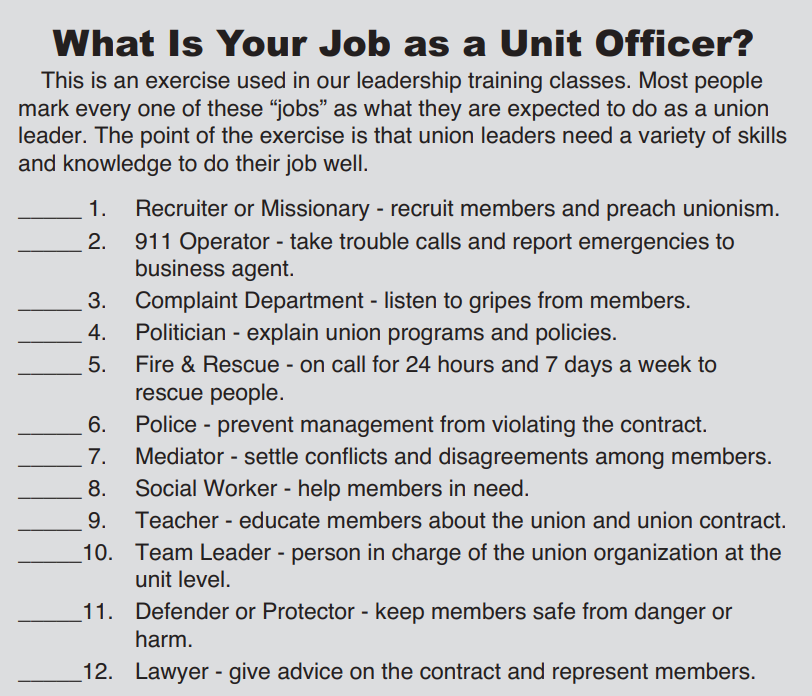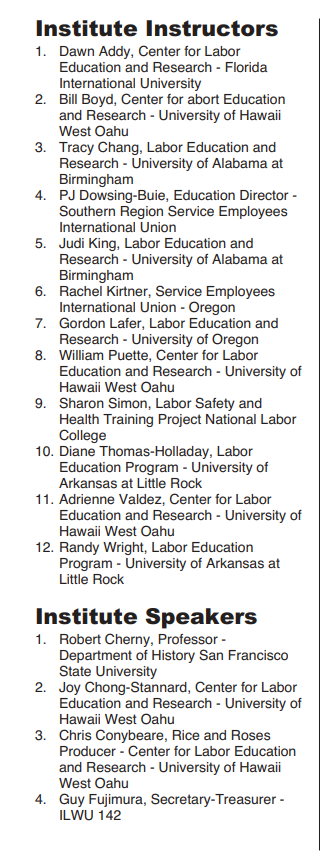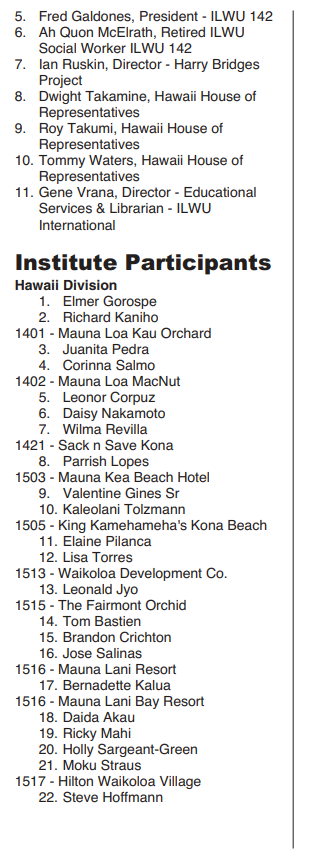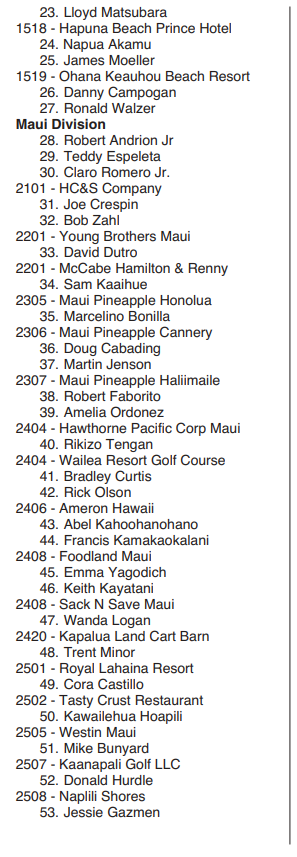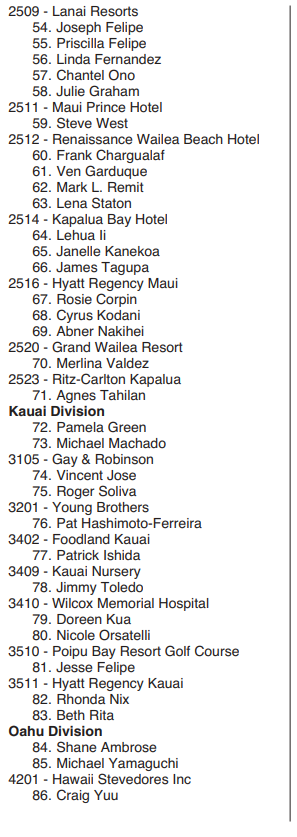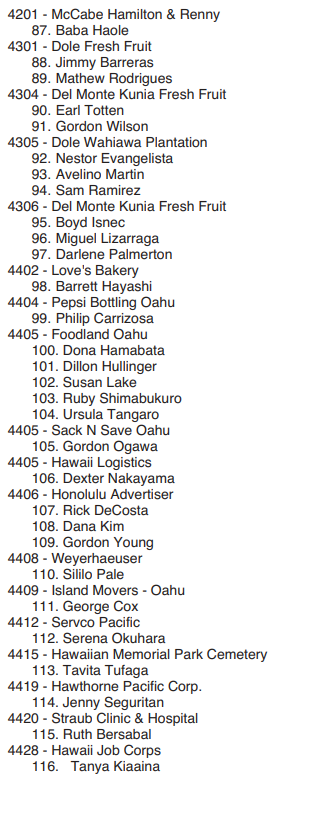HONOLULU—Education is an essential part of ILWU rank-and-file democracy. The ILWU believes that working people are fully capable of acquiring all the skills needed to run their own union.
This is why ILWU Local 142 runs its own education program that focuses on developing the skills and knowledge of union officers and members. Unit officers and shop stewards are rank-and-file workers, but as unit leaders they are expected to know how to enforce the union contract, to mediate disputes with management, to lead meetings, to handle the unitís finances, to negotiate, to work with people, and do all the other things that goes into running a union organization.
The ILWU education program is set by action of the Convention, a special meeting of rank-and-file delegates held every three years. The program adopted by the 2003 Convention called for many one-day grievance handling and leadership classes to be held in 2004 and the one-week labor institute to be held in 2005 or 2006. (The institute was held in June 2005 and is usually run once every three years.)
Twenty one-day classes were held in 2004 which were attended by 415 rank-and-file members. Another six classes have been scheduled for later in 2005.
These classes are only a small part of the total learning that goes on in the union. Unit and full-time officers acquire most of their union skills and knowledge the same way most workers learn their jobs--from more experienced workers and from on-the-job experience. Another very important way they gain knowledge is through individual study and reading. Business agents also train unit leaders by mentoring--where the business agent works individually with the unit leader, shares their experiences, gives advice, and shows by example how the work is done.
Skills and knowledge needed
Ask and ILWU rank-and-file leader and they will tell you they are expected to do a lot of different things. (See insert What Is Your Job as a Unit Officer?) To help them do their jobs better, the ILWU Labor Institute offered 32 workshops that covered most, not all, of the skills and knowledge union leaders need.
Participants the choice of attending only six out of 32 workshops. The workshops ran for six hours every day for five days and was a lot like going back to school. Following are some of the skills and content taught in these workshops.
1. Leadership Skills
2. Communication Skills
3. Research Skills
4. Bargaining with Management
5. Grievance Handling
6. Safety and Health
7. Labor Law
8. Organizing
9. Union Political Action
10. Globalization and the Economy ◆
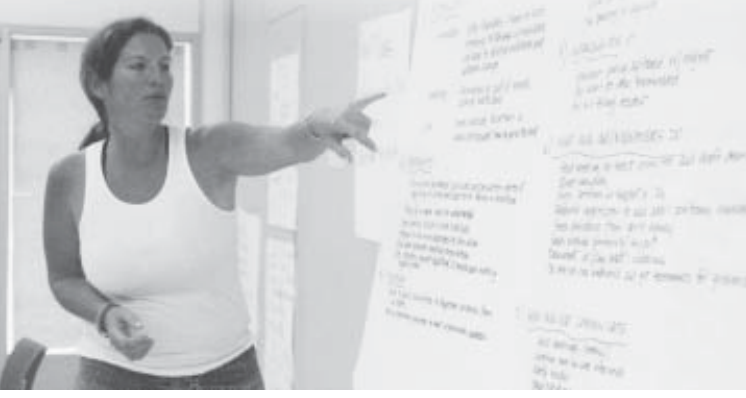
Julie Graham of Unit 2509 - Lanai Resorts reports on a action plan developed by her group in P.J. Dowsing-Buie’s class on mobilizing union members.
